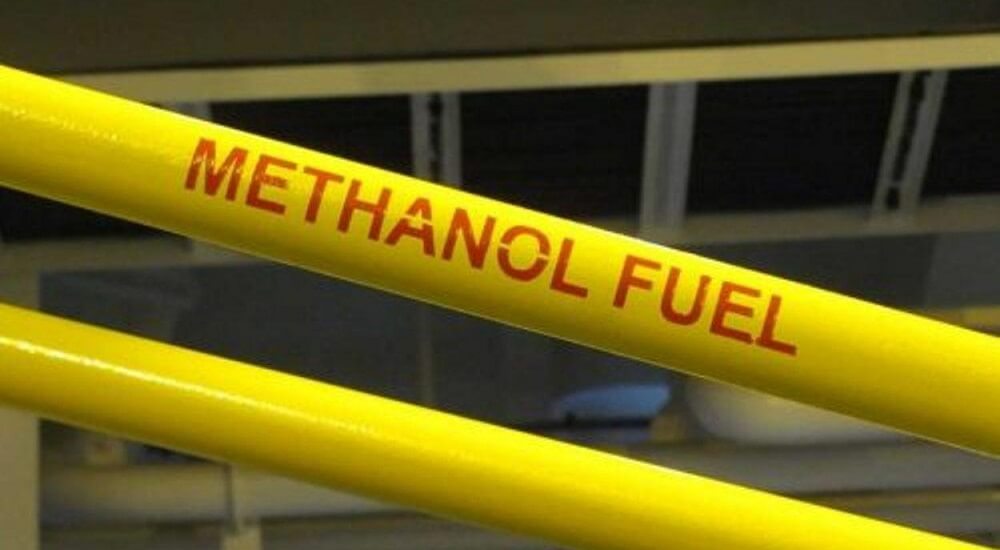As the Federal Government begins probe into the importation of methanol blended petrol to Nigeria, research has shown that methanol, when properly blended with gasoline have cleaner burning properties that generally reduce carbon-monoxide, hydrocarbon, promethium and air toxics from most gasoline engine vehicles.
Methanol is a clean burning, high octane blending component made from alternative non-petroleum energy sources such as natural gas, coal and biomass.
Advertisement
It has been commercially blended into gasoline at various times and locations since 1980. Although methanol has been widely manufactured for use in chemical production, it has also been successfully used for extending gasoline supplies in many gasoline markets around the world.
Unlike some other alcohols, studies have shown that methanol blending in gasoline has been economical without government subsidies or fuel blending mandates.
Besides providing non-petroleum alternative energy into gasoline supplies, blending methanol also delivers a clean burning high octane to the oil refiner’s gasoline supplies that can be used reduce the refiner’s energy consumption as well as improve gasoline yields from the crude oil.
Studies have shown that methanol’s high octane and oxygen content produce a cleaner burning gasoline which significantly lowers vehicle exhaust emissions.
Advertisement
It was discovered by the researchers that when produced from natural gas or biomass, methanol fuel has a lower carbon intensity (or carbon footprint) than gasoline produced from petroleum.
According to the Methanol Institute based in Washington DC in the United States, properly blended gasoline with methanol is typically compatible with materials commonly used in gasoline distribution systems as well as vehicle fuel systems.
As a result of its cleaner burning octane advantage, methanol is an economically attractive alternative for those refiners who face the problem of maintaining a high-quality gasoline while adhering to government-imposed controls on gasoline composition
The Institute said, “Extensive product research, as well as years of commercial experience, indicate that properly blended methanol in gasoline has no adverse effect on vehicle performance.
“In fact, methanol-gasoline blends have cleaner burning properties that generally reduce CO, HC, PM and air toxics from most gasoline engine vehicles.
Advertisement
“Extensive product research and decades of commercial experience indicate that blending oxygenates into gasoline can improve automobile fuel performance and reduce exhaust emissions.
“In general, the reduction or change in exhaust emissions is related to the amount of oxygen added to the fuel.”
The Methanol Institute also found that adding oxygenates generally reduces many ozone precursor emissions from vehicles such as carbon monoxide, hydrocarbon, and nitrogen oxides by the addition of oxygen and octane, and by also improving fuel distillation temperatures.
It added that total air toxic emissions are also reduced by the addition of the oxygen as well as the octane replacement of benzene producing aromatics in gasoline.
The Institute stated, “Although this emission study used ethanol as the oxygenate, the emissions effect is expected to be similar if methanol is instead used as the source of the fuel oxygen.
“Based on the oxygen content, adding seven volume percent methanol to the fuel blend (equivalent to 3.5 per cent oxygen by weight) would reduce the carbon monoxide by about 15 per cent and the hydrocarbon emissions by about 12 per cent as compared to having no oxygen in the fuel.
Advertisement
“At this oxygen level, the nitrogen also decreased by approximately five per cent. Using the octane from the methanol to further reduce the aromatics in the gasoline would reduce all of the emissions even further.”
According to the study, a significant advantage of reformulating gasoline with oxygenates such as methanol is that the emissions benefits occur immediately across all classes and ages of vehicles using the cleaner burning gasoline.
This generally provides immediate air pollution benefits without the need to wait for new emission reduction technology to penetrate the vehicle fleet population.



